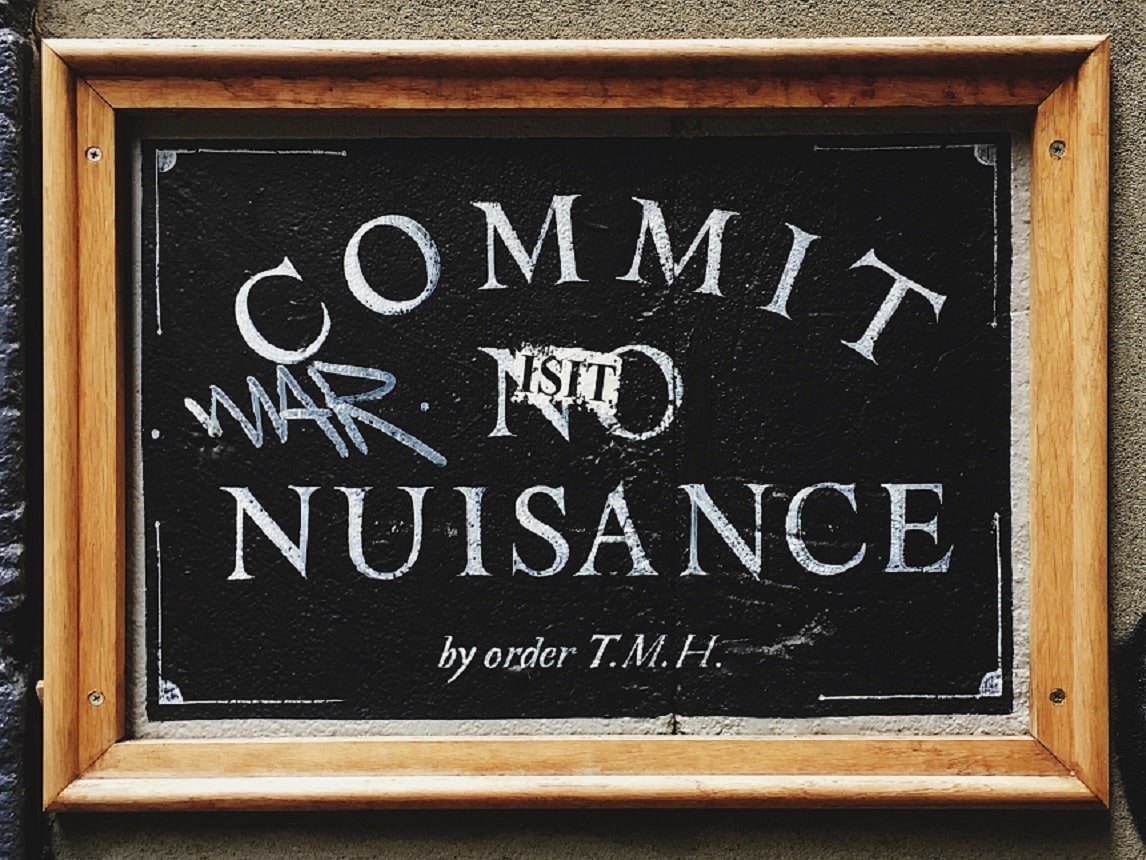
It's time for the public to have their say! Image by Jon Tyson. Unsplash licence
We’re ready to roll with the Awards in 2019 — and we’ve got some exciting plans to tell you about.
We’ll alternate between the Plain English Awards and the People’s Choice Awards
As you might imagine, it takes a tonne of support and time and resources to bring together annual awards. We’re now in our 14th year, and we know that our momentum is strong and that people’s appetite for plain English continues to grow.
After lots of planning and consideration, we’ve decided to alternate between having the full Plain English Awards one year and the People’s Choice Awards the next. Having held the full Awards last year in 2018, this means we’re focusing on the People’s Choice only in 2019.
Some of you will remember that the idea of holding the People’s Choice Awards on their own is actually not a new one. You may recall we held them on their own in 2016, to coincide with the Clarity2016 conference here in Wellington.
Entries for this year’s People’s Choice Awards will open on Saturday, 1 June
Once entries are open, members of the public will be able to nominate an outstanding communication of their choice for the People’s Choice — Best Plain English Communication.
People will also be able to nominate a miserable communication for the notorious People’s Choice — Worst Brainstrain Communication.
Entries in the People’s Choice Awards are free and will be judged by a panel of plain language specialists from New Zealand and overseas.
We’re planning a mid-year Awards ceremony
Another result of our planning is that we’ve decided to aim for a mid-year ceremony. Traditionally we’ve celebrated our winners in November. However, after this year, entries will open near the end of the year and we’ll celebrate winners the following winter. Because who doesn’t love a good mid-winter celebration?!
What about next year’s full Plain English Awards?
Entries for the 2020 Plain English Awards will open in November this year. We’ll give you plenty of information before then, so keep your eye out for our newsletters and other publicity. Subscribe to our newsletter
Thanks for following and supporting the annual Plain English Awards. You all play a big part in making these Awards a valuable and exciting event.
Nicola Welby May 9th, 2019
Posted In: 2019 People's Choice Awards, Communications, Industry awards, People's Choice awards
Tags: Brain Strain Awards, People's Choice Awards, Plain English Awards

We were lucky enough to have five judges make last year's Awards ceremony. From left are Simon Hertnon, Kylie McGrath, Rachael Fogarty, Rachel McApline, and Maryland Spencer. Image by A Beautiful Photo
Meet our incredible line-up of plain English experts — from around New Zealand and the world — who’ll be judging entries in this year’s Awards. We’re proud to have such a wonderful pool of experts, and honoured that they’ve all offered their time to help us decide on our finalists and winners. We’re also grateful for the feedback they’ll give to all shortlisted entrants.
Judges for the 2018 Plain English Awards
Melissa Wardell September 3rd, 2018
Posted In: 2018 Plain English Awards, Communications, Judges, People's Choice awards, Plain English Awards
Tags: 2018 Plain English Awards, champions, clear communication, People's Choice, Plain English Awards

You, the public, call the shots in the People's Choice awards. Photo by Stuart Guest-Smith on Unsplash.
Members of the public can praise a paragon of clarity or put forward a perplexing paper in the People’s Choice category of the Plain English Awards.
You can enter documents and websites for two awards:
- Best Plain English Communication — for the most outstanding example of a plain English document or webpage nominated by a member of the public
- Worst Brainstrain Communication — for a publicly available or widely used document or website that causes problems for many people.
How a Brainstrain award can help
The Brainstrain typically gets a lot of publicity. But even the winners of this category can turn the event into something positive. By shining a spotlight on entries in this category, Award organisers hope the entries will be rewritten in beautifully plain English.
Winners are welcome to blow their own trumpet
The winners of the Best Plain English Communication can share news of their win. They receive a logo to display on the winning publication and their email footer. They’ll also often have people blowing their trumpet for them — take a look at what stuff.co.nz had to say about last year’s winner, the Wellington City Council.
Entries come from everywhere
People nominate documents from likely and unlikely places.
The Wellington City Council’s newsletter Our Wellington Tō Tātou Pōneke won the ‘Best’ award in 2017. Judges said vibrant design and friendly language made the document appealing. ‘Successfully combines drier council initiatives with more exciting information on events.’
In 2016, a paper from researchers NZIER with the forbidding title ISDS and Sovereignty won. It succinctly explained a key point of contention in the Trans-Pacific Partnership. It was ‘a breath of fresh air to readers used to struggling through lengthy, jargon-filled advisory documents’, said the judges.
KiwiSaver documents have won both the ‘Best’ and ‘Brainstrain’ awards.
How you can enter
You have until 3 September to enter a website or document. You need to submit an electronic copy of the entry — so if you’re entering a printed document, you’ll need to scan it.
Entries must:
- be whole documents or webpages, not extracts
- be in current use for business purposes
- be owned by an organisation that operates in New Zealand
- not be owned by the organisation you work for
- not be a book, or an extract from a book.
Your identity will not be revealed to the organisations you nominate, or to the judges.
Enter the People’s Choice — Best Plain English Communication
Enter the People’s Choice — Worst Brainstrain Communication
Melissa Wardell June 29th, 2018
Posted In: People's Choice awards
Tags: Brainstrain, clear communication, People's Choice, People's Choice Awards, Plain English Awards

Learn tips from the experts on how to win. Photo by Ray Hennessy on Unsplash
On Friday, 4 May we’ll be celebrating entries opening for this year’s Awards with a free lunchtime seminar at Write Limited in Wellington.
Hear how to be a winner from the experts
We’ve gathered together a panel of experts to give you tips on how to submit a winning entry. You’ll get expert advice from past winners, judges, and supporters of the Awards, upping your chances of a successful entry.
During the seminar our panel will explain:
- what judges look for in a winning entry
- what’s involved in submitting an entry
- what winning an Award means for an individual or organisation
- why every entry plays an important part in helping everyday New Zealanders.
Book your tickets now
You’ll have plenty of time to ask questions. Bring your own lunch — we’ll supply coffee, tea, juice, and fruit.
Places are limited so book your tickets now. Entry by koha.
Melissa Wardell April 11th, 2018
Posted In: 2018 Plain English Awards, Plain English Awards, Social good, Trophy Tips Seminar
Tags: 2018 Plain English Awards, Plain English Awards, Trophy Tips Seminar, Turnaround Award

Everyone wins with a sound sponsorship agreement. Photo by Shirly Niv Marton / Unsplash
Sponsorship isn’t about giving away money to a good cause: that’s donating. Sponsorship offers two parties the opportunity to be part of a win–win agreement.
In return for their support, sponsors get the same feel-good factor they would get from donating. But on top of that, they also get a return on the investment in their chosen cause. So, true sponsorship offers an organisation something sustainable and tangible in return for its commitment.
Sponsors get clear returns on their investment
Sponsoring the Plain English Awards offers clear returns on your investment, such as:
- alignment with plain English values. You’re seen as customer-focused, transparent, and trustworthy
- brand exposure. Forget about advertising! You’ll be widely promoted in our Awards publicity, reaching large groups of potential new customers
- networking opportunities. Plain English Awards entries come from a huge range of public and private organisations. The networking opportunities you get from Awards forums (in person and online) offer a hugely valuable return, as does the actual presentation ceremony.
Is your organisation a sponsorship ‘best match’?
Looking at the values and aims of the Plain English Awards, and from our past experience, we know the types of organisations that benefit most from sponsorship.
If you can answer ‘Yes’ to any of these questions, sponsoring the Plain English Awards could be just the thing for you:
- Do you want to reinforce to your clients or customers that you always work with their best interests in mind?
- Do you want to reinforce to your clients or customers that you are transparent in your dealings with them and with other organisations?
- Do you want to be part of a movement to improve government and business documents so that all New Zealanders can understand them?
- Do you want to help build a public preference for plain English?
- Do you love celebrating success?
Answered ‘Yes’ to one of more of these questions? It’s time for a conversation!
We’d love to hear from you
Get in touch if you’d like to talk through sponsorship opportunities at this year’s Awards. We’d love to discuss a sponsorship arrangement that would benefit both the Awards and your organisation.
Phone: +64 4 384 6447
Email: enquiries@plainlanguageawards.org.nz
Visit our website for more information about the 2018 Plain English Awards
Melissa Wardell March 13th, 2018
Posted In: 2018 Plain English Awards, Plain English Awards, Social good, Sponsors
Tags: 2018 Plain English Awards, Plain English Awards, Social good, Sponsorship

Information for new migrants needs to be as clear and user-friendly as possible. Image by Dmitri Ratushny. Unsplash licence.
You’ll all be familiar with the idea of the world becoming smaller as fast-paced communications connect even the remotest places on earth to the wider world. With the click of a button we can instantly be in touch with someone as far afield as Siberia in the far north and Antarctica in the far south. But does the amount of communicating we’re doing necessarily mean that we’re understanding each other?
What if I just speak a little louder?
I don’t have to dig too deep into my own experiences of travel outside New Zealand to know how difficult a language difference can make life. I even remember once falling into the dire trap of increasing my volume to try to get my message across. How was that ever going to work? Luckily for me (but not the poor person I was talking to), our topic of attempted conversation wasn’t too important.
So what must life be like for the many migrants who make their way to New Zealand each year and don’t speak English fluently? To put things in perspective, a quarter of New Zealand’s population was born overseas. And for many of these people, English is their second — or even third — language. Imagine what these statistics mean for an organisation like Immigration New Zealand (INZ), which needs to communicate ideas, many of them complex, through a variety of mediums every day.
What plain English means for migrants to New Zealand
At the end of November last year, supporters of the annual Plain English Awards celebrated its 2017 winners at a ceremony in Wellington. INZ was one of the Awards’ valuable sponsors, and representative Anne-Marie Masgoret gave a brief address during the ceremony. While no one in the audience needed any reminding of the importance and value of plain English, Anne-Marie’s words served as terrific reinforcement.

Anne-Marie Masgoret, right, from sponsors Immigration New Zealand, with winners Anthony Frith and Bridget Cheesman.
‘Moving to live and work in a new country involves finding out a great deal of information that locals simply take for granted,’ Anne-Marie explained.
Focusing on user-friendly information
INZ’s goal is to help migrants make New Zealand their home. They aim to support these people to fully participate in and contribute to all aspects of New Zealand life. And they do this by communicating clearly and simply through a variety of mediums.
INZ also relies on other organisations to deliver their message directly to migrants.
‘New Zealand organisations are very good at providing newcomers with information. However, the information provided is not always written in a user-friendly way,’ said Anne-Marie.
‘For those new to New Zealand, the quality of information migrants receive as they settle into their new life here can make all the difference in the way they settle into this country and make it their home. It can also make a difference to whether a newcomer acts on information or just ignores it.’
Keeping it clear for those new to New Zealand
To support organisations to write clear communications, INZ created the Keeping It Clear resource. This aims to help organisations create or rewrite information in a short, simple, and easy-to-understand format.
Check out INZ’s Keeping it Clear resource
Find out about the winners of the 2017 Plain English Awards
Melissa Wardell March 1st, 2018
Posted In: Finalists, Plain English Awards, Sponsors
Tags: Plain English Awards, sponsors, Turnaround Award

From shortlists to finalists — decisions have been tough. Photo by Gaelle Marcel on Unsplash
After some tough deliberations from our judges, here are the finalists in the 2017 Plain English Awards.
As with our shortlists, entries are in no particular order. We haven’t published finalists in some categories so we don’t let the cat out of the bag.
‘Ooh — awesome’
Read some of the feedback we’ve had from judges about this year’s finalists below.
- ‘All three judges found this to be the very best group of entries we have seen in our many years judging these awards.’
- ‘We applaud the effort everyone has made to follow the principles of plain writing.’
- ‘You can be especially proud to win this category among these excellent entries!’
- ‘The friendly, light tone in this rewrite is a delight.’
- ‘When I finished the rewrite I said aloud “Ooh – awesome”.’
- ‘Overall this is an excellent effort.’
Winners will be announced on 23 November
We’ll announce our winners at the Awards ceremony in Wellington on 23 November. We’ll also publish the list of winners on our website later that evening.
Nicola Welby October 20th, 2017
Posted In: Awards brand, Communications, Finalists, Plain English Awards
Tags: clear communication, Finalists, Plain English Awards, plain language

The decisions were tough but our shortlists are out. Photo by Samuel Scrimshaw on Unsplash
We’ve had plenty of positive and productive feedback about this year’s entries, with several judges commenting on how tough their decision-making has been. One judge summed up the dilemma perfectly: ‘This competition is stiff, and we will have to do some real work to sort out the best of the best.’
Take a look at this year’s shortlists
Entries on the shortlists are in no particular order. If we haven’t published a shortlist, it means we can’t let the cat out of the bag just yet. In some categories we had fewer entries that met the judges’ high standard.
Look out for the list of finalists on 19 October.
Nicola Welby September 28th, 2017
Posted In: Communications, Plain English Awards
Tags: 2017 Shortlists, clear communication, People's Choice, Plain English Awards

One more day to submit entries! Photo by Chris Lawton on Unsplash
We’ve extended cut-off by one day
We’ve had a few enquiries from people confused about our cut-off date for entries. The confusion has been between the end of the month (yesterday) and the end of the week (today). So we’ve extended the cut-off until 6pm today. That’s right folks, you’ve got one whole extra day to get your entries in!
Nicola Welby September 1st, 2017
Posted In: Plain English Awards
Tags: Plain English Awards

Time to celebrate! Photo by Tessa Rampersad on Unsplash
Why do we hold the annual Plain English Awards? What is it exactly that we’re trying to achieve?
Celebrating individuals and organisations that put the needs of their readers first
Everyone’s talking about it — busy people leading busy lives. Everyday people are regularly expected to read what can be critical information in a variety of mediums. But if the information they’re getting is written or presented in a way that makes it difficult to process, essential messages can get lost or muddled.
The Plain English Awards celebrate individuals and organisations that put the needs of their readers first. The Awards aim to:
- improve government and business documents so that all New Zealanders can understand them
- raise public awareness of the need for, and benefits of, plain English
- create a public preference for organisations that choose to communicate in plain English.
How seemingly small changes can make a big difference
Last year Wellington author and writing trainer Simon Hertnon was a judge in the People’s Choice section of the Plain English Awards. He and his panel members chose the winner of the Best People’s Choice — Best Plain English Communication and the People’s Choice — Worst ‘Brainstrain’ Communication.
Simon shared his impression of the two winning entries in his recent blog post about the critical influence of tone in a formal document. Suitable tone is a key component of any plain English document. And last year’s winner of the Best Plain English Communication Award offered a perfect example of how effective good tone can be. The winner of the Brainstrain Award, however, illustrated the alternative.
‘One winning entry illustrated why the default writing style of business and government — which I would characterise as formal, exhaustive, and impersonal — regularly fails to meet the needs of today’s information-overloaded reader,’ Simon says in his blog post.
‘The other winning entry provided an exemplar for what business and government writers can and should do to improve the quality and usefulness of their writing. That is, to employ a familiar, confident, no-nonsense tone.’
Time to get your entries in for the 2017 Awards
Have you submitted your Awards entries yet? Don’t miss out — enter now
Nicola Welby August 30th, 2017
Posted In: Plain English Awards
Tags: Brainstrain, People's Choice, Plain English Awards, Simon Hertnon












